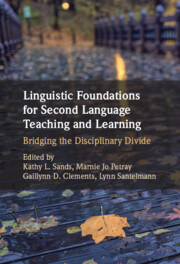Refine search
Actions for selected content:
3412993 results
Chapter 1 - The Utopian Impulse in British Literature and Culture since 1945
-
-
- Book:
- The Cambridge Companion to British Utopian Literature and Culture since 1945
- Published online:
- 18 December 2025
- Print publication:
- 12 February 2026, pp 1-34
-
- Chapter
- Export citation
Maps
-
- Book:
- The Cambridge History of Later Latin Literature
- Published online:
- 16 January 2026
- Print publication:
- 12 February 2026, pp xxxii-xxxiv
-
- Chapter
- Export citation
1 - Histories of Later Latin Literature
-
- Book:
- The Cambridge History of Later Latin Literature
- Published online:
- 16 January 2026
- Print publication:
- 12 February 2026, pp 1-14
-
- Chapter
- Export citation

Case Studies: Stahl's Essential Psychopharmacology
- Forensic Psychiatry
- Coming soon
-
- Expected online publication date:
- February 2026
- Print publication:
- 28 February 2026
-
- Book
- Export citation
36 - Fiction
-
- Book:
- The Cambridge History of Later Latin Literature
- Published online:
- 16 January 2026
- Print publication:
- 12 February 2026, pp 995-1030
-
- Chapter
- Export citation
Chapter 9 - Comments on Carbon Policy: Panel Discussion
- from Part V - Policy Session: Climate Change
-
-
- Book:
- Advances in Economics and Econometrics
- Published online:
- 11 November 2025
- Print publication:
- 12 February 2026, pp 283-291
-
- Chapter
- Export citation
35 - Epistolography
-
- Book:
- The Cambridge History of Later Latin Literature
- Published online:
- 16 January 2026
- Print publication:
- 12 February 2026, pp 962-994
-
- Chapter
- Export citation
Part V - Generic Change And Continuity
-
- Book:
- The Cambridge History of Later Latin Literature
- Published online:
- 16 January 2026
- Print publication:
- 12 February 2026, pp 761-762
-
- Chapter
- Export citation
10 - Latin Sophists and Rhetors
- from Part II - From The Age of Trajan to the Age of Constantine
-
- Book:
- The Cambridge History of Later Latin Literature
- Published online:
- 16 January 2026
- Print publication:
- 12 February 2026, pp 266-292
-
- Chapter
- Export citation
15 - Literature and the Church in the Post-Constantinian Empire
- from Part III - The Empire After Constantine
-
- Book:
- The Cambridge History of Later Latin Literature
- Published online:
- 16 January 2026
- Print publication:
- 12 February 2026, pp 400-441
-
- Chapter
- Export citation
Chapter 5 - The British Counterculture, Utopia, and Class
- from Part II - Building New Communities
-
-
- Book:
- The Cambridge Companion to British Utopian Literature and Culture since 1945
- Published online:
- 18 December 2025
- Print publication:
- 12 February 2026, pp 97-118
-
- Chapter
- Export citation
7 - Geographical Space and Roman World Image
- from Part I - Later Latin Literature in its Social and Linguistic Contexts
-
- Book:
- The Cambridge History of Later Latin Literature
- Published online:
- 16 January 2026
- Print publication:
- 12 February 2026, pp 168-209
-
- Chapter
- Export citation
44 - Post-Roman Spain
- from Part VI - From the Last Years of the Western Empire to the Seventh Century
-
- Book:
- The Cambridge History of Later Latin Literature
- Published online:
- 16 January 2026
- Print publication:
- 12 February 2026, pp 1200-1223
-
- Chapter
- Export citation

Linguistic Foundations for Second Language Teaching and Learning
- Bridging the Disciplinary Divide
- Coming soon
-
- Expected online publication date:
- February 2026
- Print publication:
- 31 January 2026
-
- Book
- Export citation
Part II - Frontiers of Modern Econometrics
-
- Book:
- Advances in Economics and Econometrics
- Published online:
- 11 November 2025
- Print publication:
- 12 February 2026, pp 47-48
-
- Chapter
- Export citation
3 - Teaching and Learning
- from Part I - Later Latin Literature in its Social and Linguistic Contexts
-
- Book:
- The Cambridge History of Later Latin Literature
- Published online:
- 16 January 2026
- Print publication:
- 12 February 2026, pp 59-80
-
- Chapter
- Export citation
47 - Post-Roman Gaul
- from Part VI - From the Last Years of the Western Empire to the Seventh Century
-
- Book:
- The Cambridge History of Later Latin Literature
- Published online:
- 16 January 2026
- Print publication:
- 12 February 2026, pp 1280-1337
-
- Chapter
- Export citation
39 - Technical and Encyclopaedic Literature
-
- Book:
- The Cambridge History of Later Latin Literature
- Published online:
- 16 January 2026
- Print publication:
- 12 February 2026, pp 1096-1128
-
- Chapter
- Export citation
31 - Sermons
-
- Book:
- The Cambridge History of Later Latin Literature
- Published online:
- 16 January 2026
- Print publication:
- 12 February 2026, pp 855-877
-
- Chapter
- Export citation
General Index
-
- Book:
- The Cambridge History of Later Latin Literature
- Published online:
- 16 January 2026
- Print publication:
- 12 February 2026, pp 1711-1778
-
- Chapter
- Export citation
